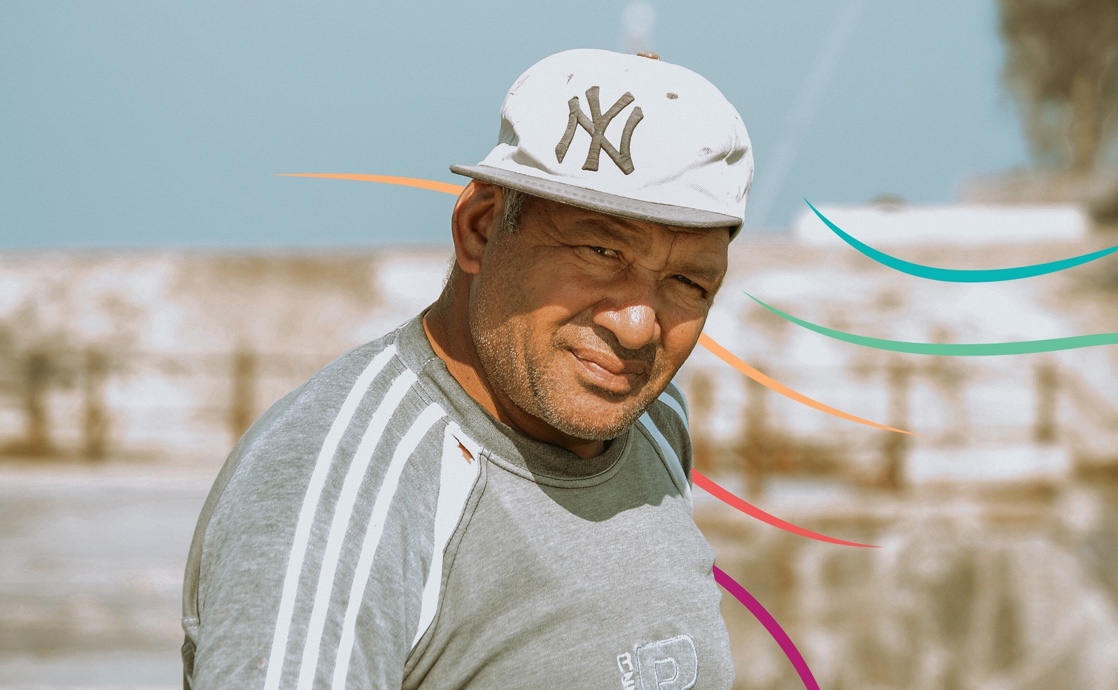The views expressed in our content reflect individual perspectives and do not represent the authoritative views of the Baha'i Faith.
In a novel I’m reading – Winter Counts by the Sicangu Lakota writer David Heska Wanbli Weiden – the main character asks himself a profound question: “Will I ever forgive myself for the things I’ve done?”

When I came across that passage in the story, the question hit me hard, and made me set the book aside for a bit so I could consider the whole concept of forgiveness and self-forgiveness.
Maybe you’ve never done anything that made you feel ashamed of yourself and in need of forgiveness, but I suspect that very few of us can honestly make that claim. We’re all human, so we make mistakes and errors in judgment. We fail our spiritual tests. We screw up royally sometimes. We can be cruel, prejudiced, thoughtless, and even intentionally harmful. That’s the hard part of being human – the overt expression of what the Baha’i writings call our lower nature. In a talk he gave in Paris, Abdu’l-Baha said:
In man there are two natures; his spiritual or higher nature and his material or lower nature. In one he approaches God, in the other he lives for the world alone. Signs of both these natures are to be found in men. In his material aspect he expresses untruth, cruelty and injustice; all these are the outcome of his lower nature. The attributes of his Divine nature are shown forth in love, mercy, kindness, truth and justice, one and all being expressions of his higher nature. Every good habit, every noble quality belongs to man’s spiritual nature, whereas all his imperfections and sinful actions are born of his material nature.
In that ongoing battle between the material and the spiritual inside us, we all let the lower nature take over from time to time. Everyone I’ve ever known has at least one major thing they’ve done in their past that makes them feel seriously regretful and ashamed. I can think of a few – well, OK, more than a few – of those instances myself, and my skin flushes red with self-recrimination when I remember them.
No matter how hard we try to be perfect people, we fall short, which seems like a universal human condition.
So the question “Will I ever forgive myself?” becomes a really important one. Everybody has to struggle with the shame and guilt of past deeds, and has to figure out what to do with those memories and the pain they create.
Psychologists say that we have three main ways of dealing with the hurt we’ve caused others. We can deny they ever happened, which rarely turns out well. We can dwell on them, which generally results in defining ourselves as “bad” people. Or we can work our way through them, attempting to understand and learn from what we’ve done and figuring out how to do better next time.
While thinking about that whole process of self-forgiveness, I turned, like I always do, to the deep well of wisdom in the Baha’i writings. Baha’u’llah, the prophet and founder of the Baha’i Faith, clearly said that we can each seek forgiveness by turning toward God:
Verily, the breezes of forgiveness have been wafted from the direction of your Lord, the God of Mercy; whoso turneth thereunto, shall be cleansed of his sins, and of all pain and sickness. – Baha’u’llah, Epistle to the Son of the Wolf.
For Baha’is, the process of forgiveness is mercifully simple. It does not involve confession to another person or carrying out some specific act of atonement – instead, it takes place inside the soul:
When the sinner findeth himself wholly detached and freed from all save God, he should beg forgiveness and pardon from Him. Confession of sins and transgressions before human beings is not permissible, as it hath never been nor will ever be conducive to divine forgiveness. Moreover such confession before people results in one’s humiliation and abasement, and God – exalted be His glory – wisheth not the humiliation of His servants. Verily He is the Compassionate, the Merciful. The sinner should, between himself and God, implore mercy from the Ocean of mercy … – Baha’u’llah, Tablets of Baha’u’llah.
This doesn’t mean that no apologies are necessary. Once we’ve privately sought forgiveness from our Creator, the Baha’i teachings say, we can decide to apologize to those we’ve wronged. When that happens, we can then forgive ourselves – and hopefully learn from the experience.
Actually, that’s what self-forgiveness does. It recognizes the fact that we can adapt, grow, and change – that we each have the internal spiritual capacity to become better human beings each day. What we did yesterday, then, doesn’t have to define us forever. If we reflect on our past misdeeds and seek to correct them by acting differently in the future, then we can make progress. When that happens, we can aspire to the Baha’i standard:
Beware lest ye harm any soul, or make any heart to sorrow; lest ye wound any man with your words, be he known to you or a stranger, be he friend or foe. Pray ye for all; ask ye that all be blessed, all be forgiven. – Abdu’l-Baha, Selections from the Writings of Abdu’l-Baha.
When Abdu’l-Baha asked us to “beware lest ye harm any soul,” doesn’t it make sense that his loving admonition includes our own souls, too?
















Comments
Sign in or create an account
Continue with Googleor